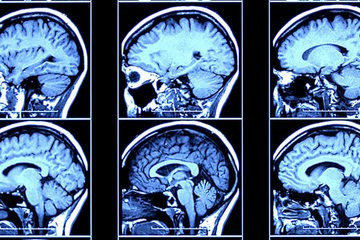Alzheimer's may be transmitted through human growth hormone injections or surgery

Early indications have emerged that Alzheimer's disease may be transmitted through contaminated injections of human growth hormone or medical instruments.
A study from University College London has found that the transmission of Alzheimer's may be similar to that of Creutzfeldt-Jakob disease (CJD), a degenerative brain disease, which has been proved to be spread by contaminated human growth hormone injections - a treatment that was withdrawn in the 1980s after the risk of CJD infection became known.
Dr John Collinge at UCL and his team claim to have made the discovery after carrying out eight post mortem brain studies. The researchers explained that while their findings raised the possibility of transmission of Alzheimers, they are not conclusive and far more research is needed before these suspicions are substantiated.
Collinge said: "Our findings relate to the specific circumstance of cadaver-derived human growth hormone injections, a treatment that was discontinued many years ago. It is possible our findings might be relevant to some other medical or surgical procedures, but evaluating what risk, if any, there might be requires much further research."
Scientists identified two indicators of Alzheimer's: abnormal clusters of protein fragments which are known as amyloid plaques and tangles of a different protein known as tau.
The UCL researchers uncovered one of these two markers for Alzheimer's as they were carrying out studies on patients who suffered from CJD. Amyloid plaques were found on to be present in seven of the eight brains they studied.
All eight of the patients had caught CJD from contaminated human growth hormone injections which they had received as children. Collinge and his team have hypothesised that on the back of their findings that Alzheimer's could be spread in the same way as CJD and then grow in the brain. Animal studies thus far have supported the idea but have not delivered conclusive proof.
Dr Eric Karran, director of research at Alzheimer's Research UK, said: "While the findings sound concerning, it's important to remember that human-derived hormone injections are no longer used and were replaced with synthetic forms since the link to CJD was discovered in the 1980s.
"Current measures in place to limit contamination with the prion protein and minimise CJD risk from hospital procedures are very rigorous and the risk of developing CJD from surgical contamination is extremely low.
"The biggest risk factor for Alzheimer's is age, along with genetic and lifestyle factors. If further research was to confirm a link between historical tissue contamination and Alzheimer's, it would only likely be relevant to a tiny proportion of the total number of people affected."
Dr Collinge agreed more research is needed. He said: "I do not think there is any cause for alarm. No-one should delay or not go for surgery because of this."
Chief Medical Officer Dame Sally Davies added: "As this research itself states, there is no evidence that Alzheimer's disease can be transmitted in humans, nor is there any evidence that Alzheimer's Disease can be transmitted through any medical procedure. This was a small study on only eight samples. We monitor research closely and there is a large research programme in place to help us understand and respond to the challenges of Alzheimer's. I can reassure people that the NHS has extremely stringent procedures in place to minimise infection risk from surgical equipment, and patients are very well protected."
© Copyright IBTimes 2025. All rights reserved.






















